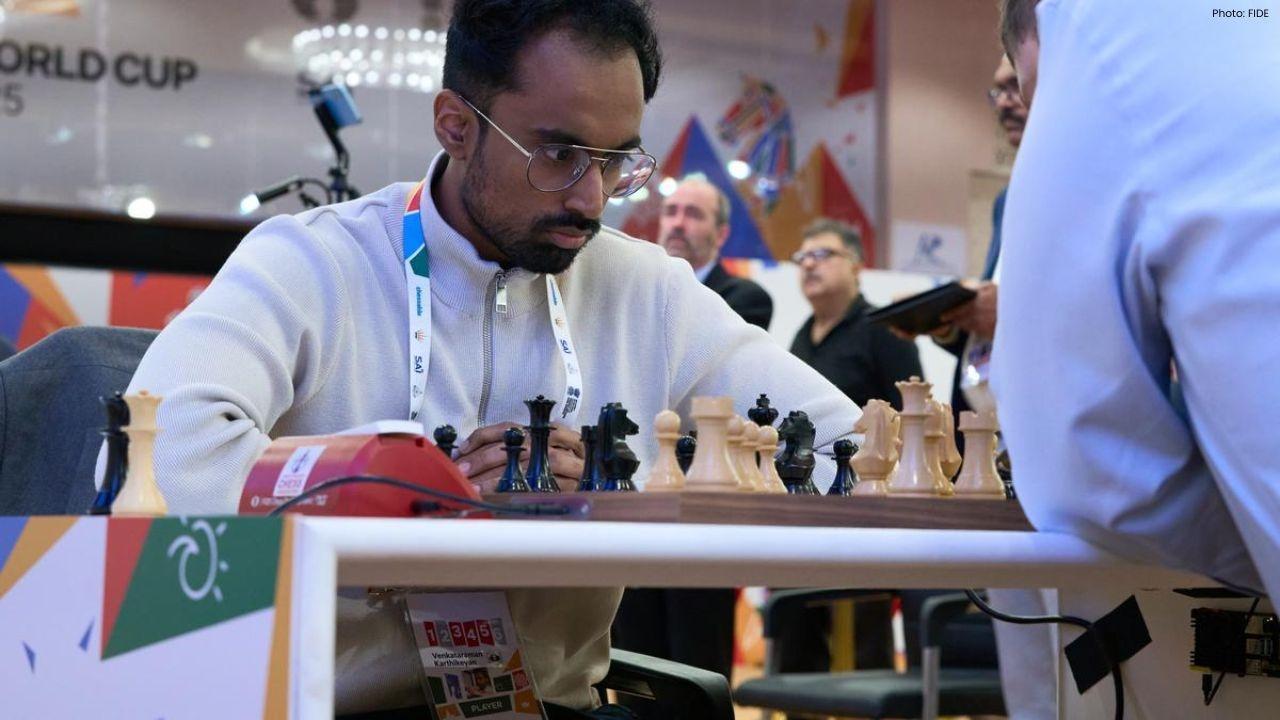
Post by : Sami Al-Rahmani
This article is intended for informational purposes only and does not constitute legal or financial advice. Laws and regulations may change over time, and readers should consult with qualified legal or real estate professionals in Oman or Bahrain before making any investment decisions.
Investing in real estate abroad can be one of the most rewarding financial decisions—especially in the Gulf region, where property markets are backed by stable economies, tax advantages, and strategic locations. Among GCC countries, Oman and Bahrain have recently opened their doors wider to foreign investors, offering property ownership opportunities that were once limited to citizens or GCC nationals.
However, buying property abroad isn’t just about choosing the right location or getting a good deal. It involves understanding local laws, ownership restrictions, and compliance requirements to ensure your investment is safe and legally sound. Whether you’re purchasing a vacation home, rental property, or commercial asset, following the correct legal process can protect you from costly mistakes.
Here’s a detailed guide outlining the 7 critical legal steps every foreign investor must take before investing in Oman or Bahrain.
Before signing any deal, investors must first understand what kind of property they are legally allowed to buy in Oman and Bahrain.
Foreign ownership in Oman is permitted only in designated areas known as Integrated Tourism Complexes (ITCs). These are premium developments designed for both local and foreign buyers, offering luxury villas, apartments, and townhouses. Examples include The Wave (Al Mouj Muscat), Muscat Hills, and Jebel Sifah.
Foreign buyers can:
Own freehold properties in ITCs.
Obtain residency permits linked to their property ownership.
Rent out or sell the property without restrictions.
However, properties outside ITCs are restricted to Omani and GCC nationals only.
Bahrain offers even more flexibility. Foreigners can own property in several freehold zones such as Juffair, Amwaj Islands, Seef District, Durrat Al Bahrain, and Bahrain Bay.
Foreign ownership rights in Bahrain include:
Freehold ownership in designated zones.
100% foreign ownership for commercial property in approved areas.
Ability to lease, sell, or inherit property under Bahraini law.
Tip: Always confirm whether the property lies in a freehold or leasehold area before proceeding. Your real estate agent should provide written verification.
Before investing, verify that the developer and project are legally registered with the relevant authorities.
In Oman, the Ministry of Housing and Urban Planning (MoHUP) regulates property development. Always check:
If the developer has a valid license.
Whether the project has Ministry approval.
If the land title is clear and free from disputes.
In Bahrain, the Real Estate Regulatory Authority (RERA Bahrain) oversees developers and projects. Use RERA’s official portal to:
Verify if the project is registered.
Review escrow account details.
Check progress reports and approvals.
This step is crucial to avoid buying from unregistered developers, which can lead to delays or even loss of funds.
Legal due diligence is a must before any property purchase abroad. It ensures the property’s ownership, status, and rights are clear.
Your lawyer or legal consultant should:
Review the title deed for authenticity.
Ensure there are no mortgages, liens, or encumbrances.
Check if all municipal and development permissions are obtained.
Confirm ownership transfer rights for foreigners.
In Oman, the title deed (locally called “sanad”) is issued by the MoHUP. In Bahrain, deeds are issued by the Survey and Land Registration Bureau (SLRB).
Always request official documents from government offices or verified legal representatives—not just copies from agents or sellers.
A No-Objection Certificate (NOC) is an essential document for transferring property ownership in both countries.
An NOC is issued by the Ministry of Housing, confirming:
The property is eligible for foreign ownership.
There are no legal disputes.
The buyer meets residency or visa criteria (if applicable).
NOCs may be required from:
The municipality (confirming the property meets building and zoning regulations).
Developers or community management (for maintenance clearance).
RERA Bahrain, for off-plan property purchases.
Failure to obtain the NOC can delay registration or invalidate the sale.
While Oman and Bahrain have favorable tax environments, foreign buyers should still understand all related costs before finalizing a purchase.
Registration fee: 3% of the property value.
Stamp duty and administrative charges.
Annual maintenance fees for properties within ITCs.
No income tax or capital gains tax on property sales.
Additionally, foreign buyers may apply for a residency visa through property ownership if the property meets certain value requirements (often OMR 250,000+).
Registration fee: 1.5% to 2% of the property value.
Title deed issuance fee.
Property management or service charges.
No property tax or inheritance tax.
Foreign investors in Bahrain are also eligible for residency visas when purchasing freehold properties of a specified value (typically BD 50,000 or more).
Tip: Always clarify if the purchase includes service fees, maintenance costs, or shared community charges before signing.
Once legal checks and payments are clear, the next step is to sign a Sales and Purchase Agreement (SPA) and register the property in your name.
The SPA should clearly state:
The buyer and seller’s legal details.
Exact property description and size.
Payment terms and installment schedule.
Handover date and penalties for delays.
Responsibilities for maintenance, taxes, and utilities.
Always have your SPA reviewed by a local property lawyer. Avoid signing documents written only in Arabic unless you fully understand their content—request an official English translation.
The signed SPA is submitted to the Ministry of Housing and Urban Planning.
The registration fee (3%) is paid.
A new title deed is issued in the buyer’s name.
The process may take 2–4 weeks if all documents are complete.
Documents are submitted to the Survey and Land Registration Bureau (SLRB).
Fees are paid (1.5–2%).
A title deed is issued and recorded under the buyer’s name.
Registration is your legal proof of ownership—never rely on developer receipts or contracts alone.
Perhaps the most important step—hire a qualified local legal and financial advisor. Laws, ownership zones, and government regulations can change, and professional guidance helps you navigate them safely.
Your advisor can:
Represent you during negotiations.
Review all contracts and legal documents.
Assist in securing NOCs and title transfers.
Provide tax, visa, and inheritance planning advice.
Communicate with government offices on your behalf.
Look for licensed firms or lawyers with experience in real estate law. In both Oman and Bahrain, legal fees are reasonable and can save you from future disputes.
Check community rules before buying.
Review off-plan contracts carefully and ensure escrow accounts exist.
Consider property insurance for protection.
Keep all official documents safely stored and backed up.
Oman and Bahrain offer a rare combination of investment security, economic stability, and lifestyle appeal. Their property markets are growing steadily, backed by investor-friendly reforms and long-term residency options for foreign owners.
However, success depends on how well you understand and follow the legal framework. From verifying ownership rights and obtaining NOCs to final registration, each step ensures your investment is protected and compliant.
By following this 7-step legal checklist, you can confidently invest in Oman or Bahrain knowing your property purchase is both secure and fully legal.










Suranika Roshan Celebrates The Moon Beam Bakery Opening
Suranika Roshan launches The Moon Beam Bakery in Mumbai, with Saba Azad sharing her admiration on In

Jets Set Franchise Record with Dual Special Teams Touchdowns
The New York Jets made history with two special teams touchdowns, marking a record in franchise hist

Chargers Triumph Over Steelers 25-10 in Dominant Display
The Chargers secured a 25-10 victory against the Steelers, showcasing Herbert's skills and overwhelm

Rams Triumph Over 49ers; Adams Leaves with Injury
Los Angeles Rams defeated the San Francisco 49ers 42-26, but Davante Adams exited late with an obliq

Choosing Between Jurel and Pant: An Indian Selection Challenge
Dhruv Jurel's phenomenal form before the South Africa Tests makes it tough for selectors as Rishabh

Karthik Venkataraman Secures Spot in FIDE World Cup Fourth Round
GM Karthik Venkataraman triumphed over Bogdan-Daniel Deac to advance in the FIDE World Cup 2025, sho